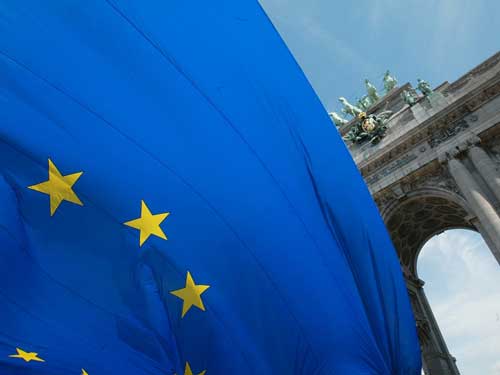Advisory: Site Takedowns That Happen in EU Stay in EU
The smarter way to stay on top of the multichannel video marketplace. Sign up below.
You are now subscribed
Your newsletter sign-up was successful
Google has won a preliminary victory in a decision that could help other U.S. search engines and edge providers navigate the European Union's privacy shield framework without having to block U.S. and other countries' access to info.

Advocate General of the Court of Justice of the European Union Maciej Szpunar, in an advisory (non-binding) opinion to the court, says a French Commission ruling that Google should have to block access ("de-referencing" in EU parlance) to offending sites on all its domain names, not just those from EU countries, is overly broad.
The advocate general's job is to propose solutions to cases before the court.
Google had balked at the French ruling, only removing the links from searches performed in the EU countries, and proposed geo-blocking to make sure that the sites did not show up in EU countries, while still available to countries outside the EU.
France fired back with a penalty, reported to be €100,000. Google appealed and France referred the issue to the Court of Justice for a preliminary ruling. In guidance to the court Thursday for that ruling, Szpunar said "search requests made outside the EU should not be affected by the de-referencing of the search results."

He said the right to "be forgotten" must be balanced with the "legitimate public interest in accessing the information being sought."
If worldwide "de-referencing" were upheld, he said, "the EU would not be able to define and determine a right to receive information, let alone balance it against the other fundamental rights to data protection and to privacy."
The smarter way to stay on top of the multichannel video marketplace. Sign up below.
He did not rule out de-referencing on a worldwide scale in some instances, but said the case before the court was not one of those.
He told the court that when agreeing to an EU de-referencing request, a search engine opertor should not be not required to apply it to all domain names, and should be encouraged to use geo-blocking and other methods to insure full de-referencing of EU searches.
Technically, the Court of Justice decision won't decide the matter, either. It is up to individual courts in EU countries to dispose of the cases they refer to the Court of Justice, but they are bound by their EU membership to decide it "in accordance with the Court of Justice's decision, so as a practical matter that decision holds sway.
That advisory was just fine with the Computer and Communications Industry Association, whose members include Google and and major edge providers.
“The Advocate General’s opinion respects access to information around the world and we hope the European Court of Justice follows the balance and consideration given to global internet users,": said CCIA president Ed Black. "Those who have fought for access to information for decades have grave concerns about any one person or government having the ability to delete information - no matter how tempting that prospect may be in any one example.”
Contributing editor John Eggerton has been an editor and/or writer on media regulation, legislation and policy for over four decades, including covering the FCC, FTC, Congress, the major media trade associations, and the federal courts. In addition to Multichannel News and Broadcasting + Cable, his work has appeared in Radio World, TV Technology, TV Fax, This Week in Consumer Electronics, Variety and the Encyclopedia Britannica.

